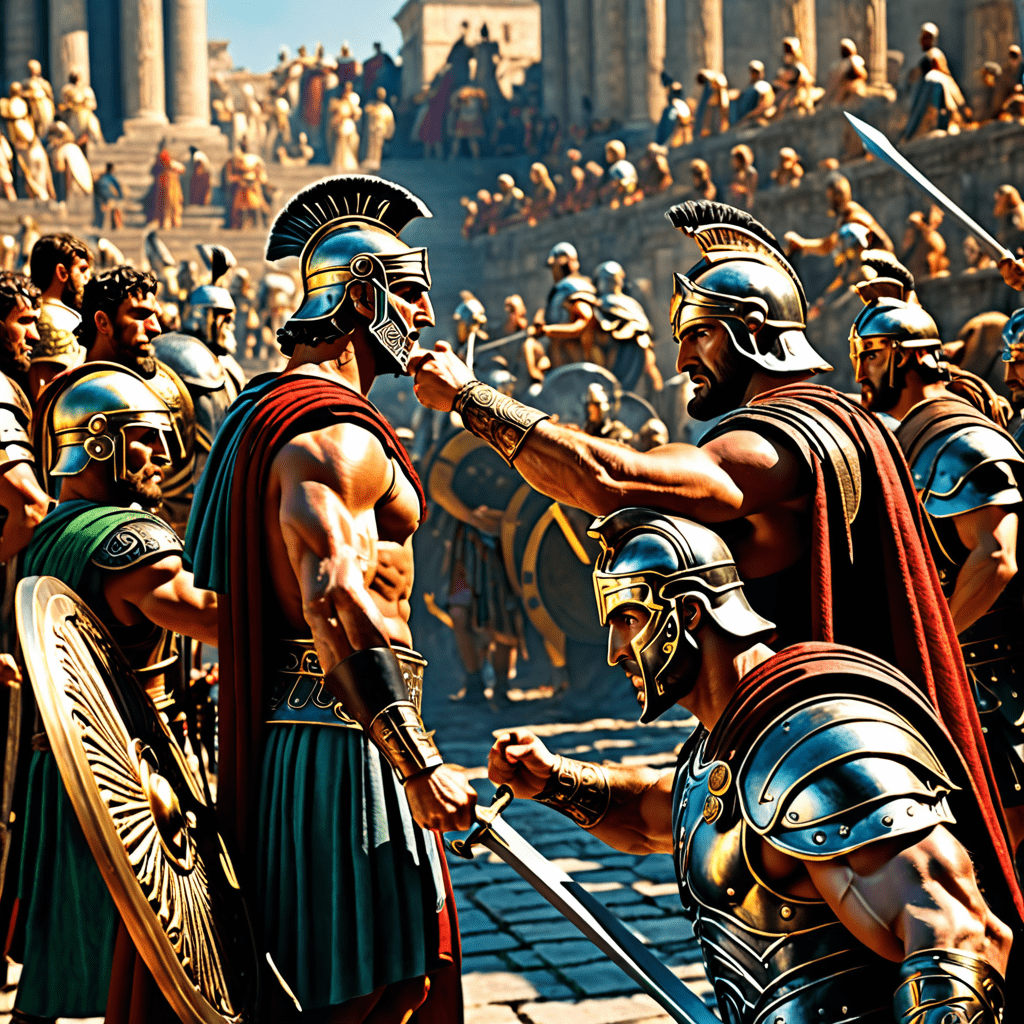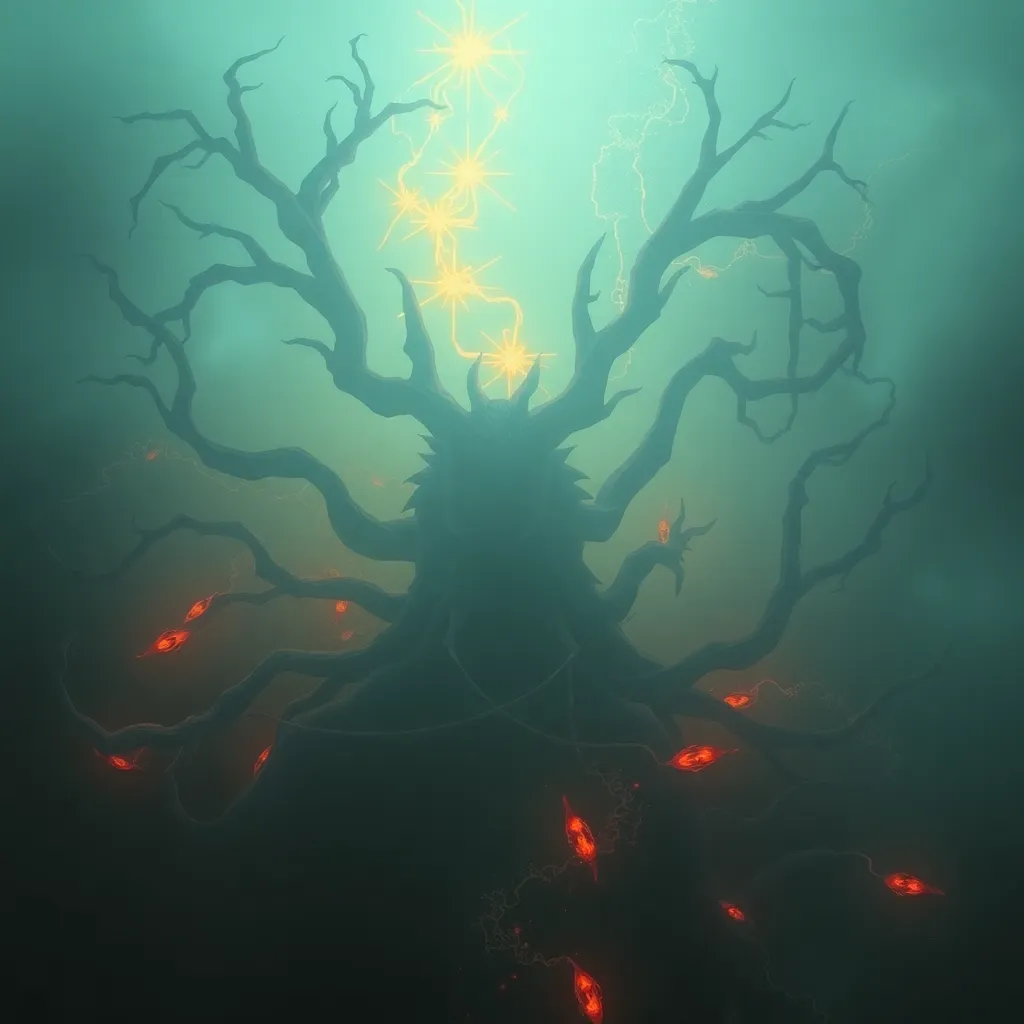The Journey of Change: Transformations That Inspire Growth in Myths
Introduction to Myths and Transformation
Myths have served as foundational narratives across cultures, offering insight into human nature, societal values, and the mysteries of existence. They are traditional stories that explain natural phenomena, cultural practices, and human experiences, often featuring gods, heroes, and mythical creatures. One of the most profound themes in mythology is transformation—an exploration of change that resonates deeply with personal and collective growth.
This article seeks to delve into the theme of transformation in mythology, examining how these narratives inspire individuals and societies to embrace change. By exploring various mythological stories, we can uncover the lessons they impart about resilience, growth, and the journey of life itself.
The Archetype of the Hero’s Journey
Joseph Campbell’s concept of the “monomyth,” or the Hero’s Journey, encapsulates the universal pattern of adventure and transformation found in many myths. This archetype outlines a hero’s path from the ordinary world, through trials and tribulations, to a return enriched with knowledge and experience.
Examples of hero transformations abound in mythology:
- Hercules: His twelve labors symbolize the struggle against adversity and the pursuit of personal excellence.
- Odysseus: His long journey home is marked by numerous challenges, leading to profound personal growth and wisdom.
The trials faced by these heroes serve as a metaphor for the challenges we encounter in our own lives. They illustrate that growth often arises from overcoming obstacles, thus emphasizing the transformative power of experience.
Mythical Creatures and Their Transformations
Mythical creatures often embody the theme of transformation, showcasing significant changes that reflect deeper truths about existence. Two notable examples include:
- The Phoenix: This bird rises from its ashes, symbolizing rebirth, renewal, and the cyclical nature of life.
- The Werewolf: This creature transforms from human to beast, representing the duality of human nature and the struggle between civilization and primal instincts.
The symbolism of transformation in these creatures teaches us valuable lessons about resilience, the potential for change, and the acceptance of our complex identities. Their journeys remind us that transformation, whether positive or negative, is an integral part of existence.
Cultural Variations in Transformation Myths
Transformation myths vary significantly across cultures, each reflecting unique values and beliefs. For instance:
- Native American Myths: Often emphasize harmony with nature and the spirit world, showcasing transformations that link humans with their environment.
- Greek Myths: Frequently portray transformations driven by divine intervention, revealing the capriciousness of the gods and the moral lessons learned through change.
- Asian Myths: Such as those found in Hinduism, often highlight reincarnation and the cyclical nature of life, emphasizing the continuity of growth and learning across lifetimes.
These cultural narratives reflect the universal nature of transformation themes, illustrating how diverse societies find meaning and inspiration in the process of change.
The Role of Mentorship and Guidance in Transformation
Mentorship plays a crucial role in many mythological stories, acting as a catalyst for the hero’s growth and transformation. Figures such as Gandalf in “The Lord of the Rings” or Merlin in Arthurian legend guide protagonists through their journeys, providing wisdom and support.
The presence of mentors underscores the importance of guidance in personal development. In real life, mentorship can take many forms, from teachers and coaches to family members and friends. These relationships often help individuals navigate their own transformations, offering insights that facilitate growth.
Fallen Heroes: The Path of Redemption
Some myths feature fallen heroes who seek redemption, showcasing the transformative power of failure. Characters like Loki from Norse mythology and Anakin Skywalker from “Star Wars” exemplify this journey. Their narratives explore the complexities of morality and the potential for change even after significant missteps.
The concept of failure as a catalyst for growth is a powerful lesson in both mythology and real life. Many individuals have experienced personal failures that ultimately led to profound transformations, highlighting the resilience of the human spirit.
Lessons from Nature: Myths of Change and Renewal
Numerous myths draw inspiration from natural cycles, such as the changing seasons or the life-death-rebirth cycle. These narratives illustrate resilience and the inevitability of change. For example:
- The Spring Equinox: Myths celebrating the return of spring often symbolize renewal and hope.
- The Cycle of Life: Myths that reflect the transient nature of life highlight the importance of embracing change as part of existence.
These stories remind us that change is not only natural but essential for growth, echoing the environmental changes we face today and the human capacity to adapt and evolve.
The Psychological Impact of Transformation Myths
Myths have a profound influence on our understanding of personal change and identity. They provide frameworks for interpreting our experiences, shaping our beliefs about growth and transformation. The power of storytelling in psychological healing cannot be overstated; many individuals find solace and inspiration in myths that mirror their struggles.
Case studies of individuals inspired by transformational myths reveal how these stories can motivate and guide personal growth. By connecting with mythological narratives, people often discover new perspectives on their own challenges and aspirations.
Modern Interpretations of Mythical Transformations
Contemporary literature and media frequently reinterpret transformation myths, demonstrating their relevance in modern contexts. Stories such as “The Hunger Games” or “Harry Potter” resonate with themes of personal growth, resilience, and the journey towards self-discovery.
These modern adaptations continue to inspire audiences, emphasizing that the lessons of ancient myths remain pertinent in our rapidly changing world. They remind us of the timeless nature of transformation and the enduring human spirit.
Conclusion
The journey of change depicted in myths offers invaluable insights into the human experience. Through the lens of transformation, we can explore themes of growth, resilience, and the power of redemption. As we reflect on these narratives, we are reminded that change is not only inevitable but also a vital aspect of our journey toward personal and collective growth. Embracing transformation, guided by the wisdom of myths, can inspire us to navigate the complexities of life with courage and hope.



